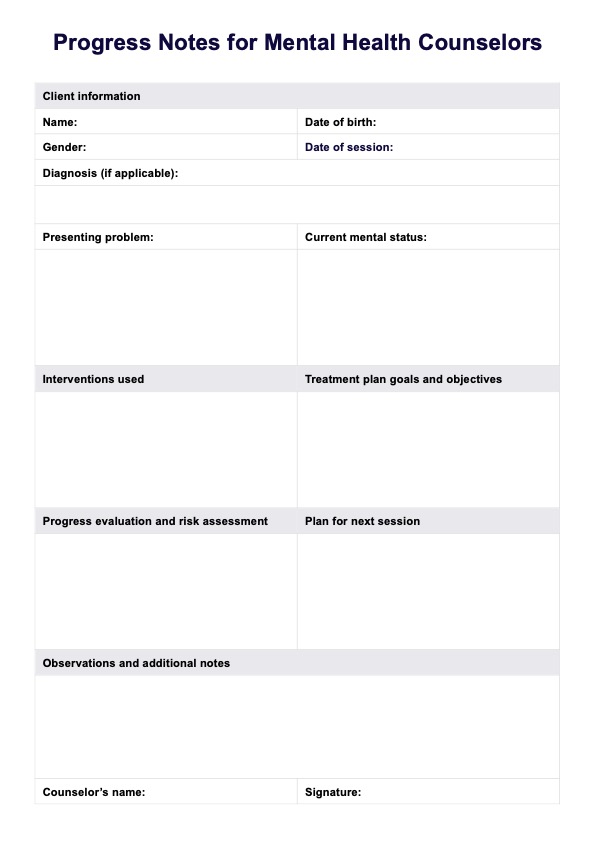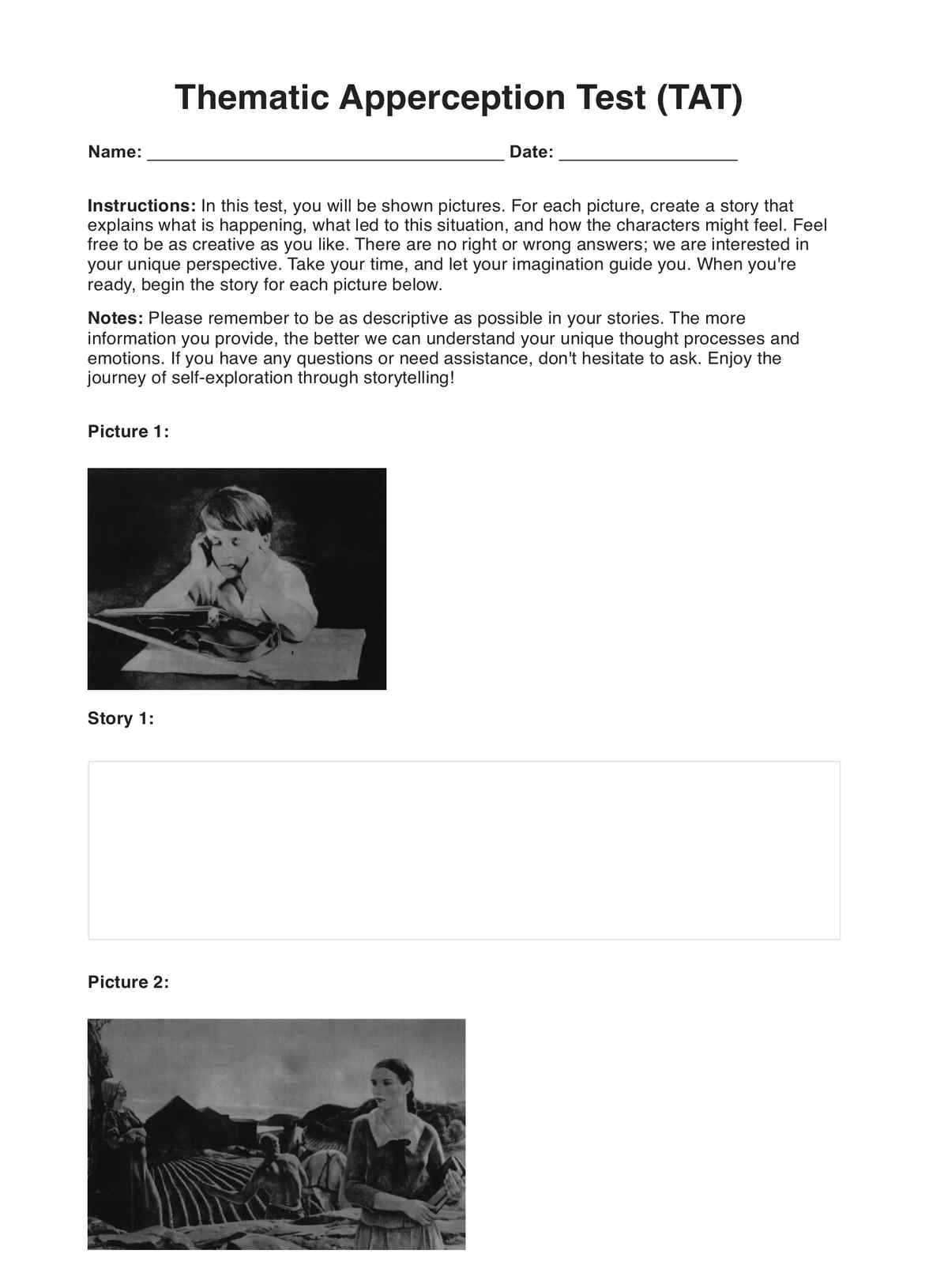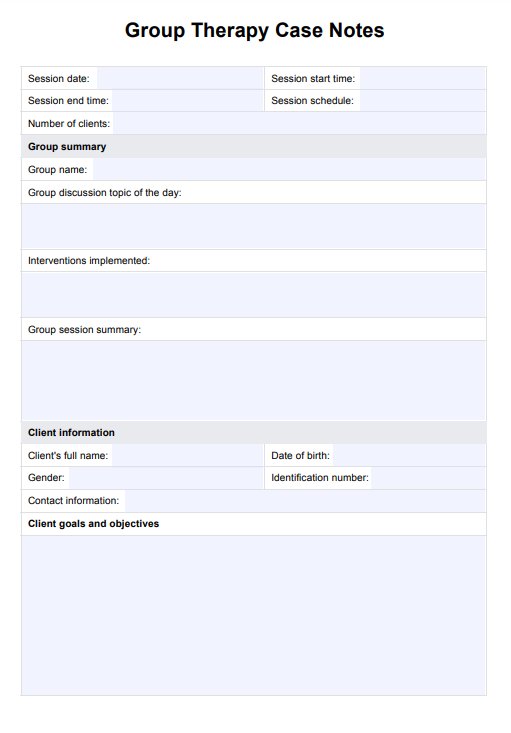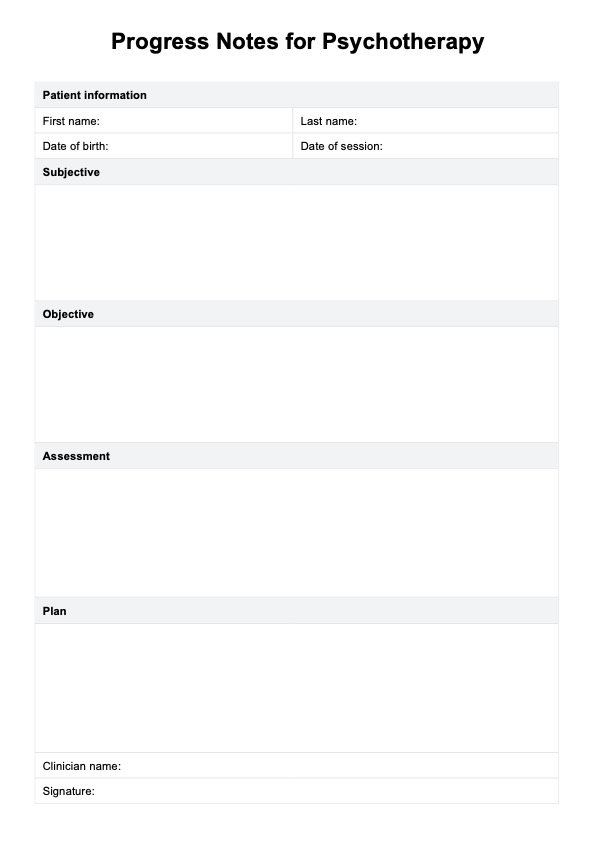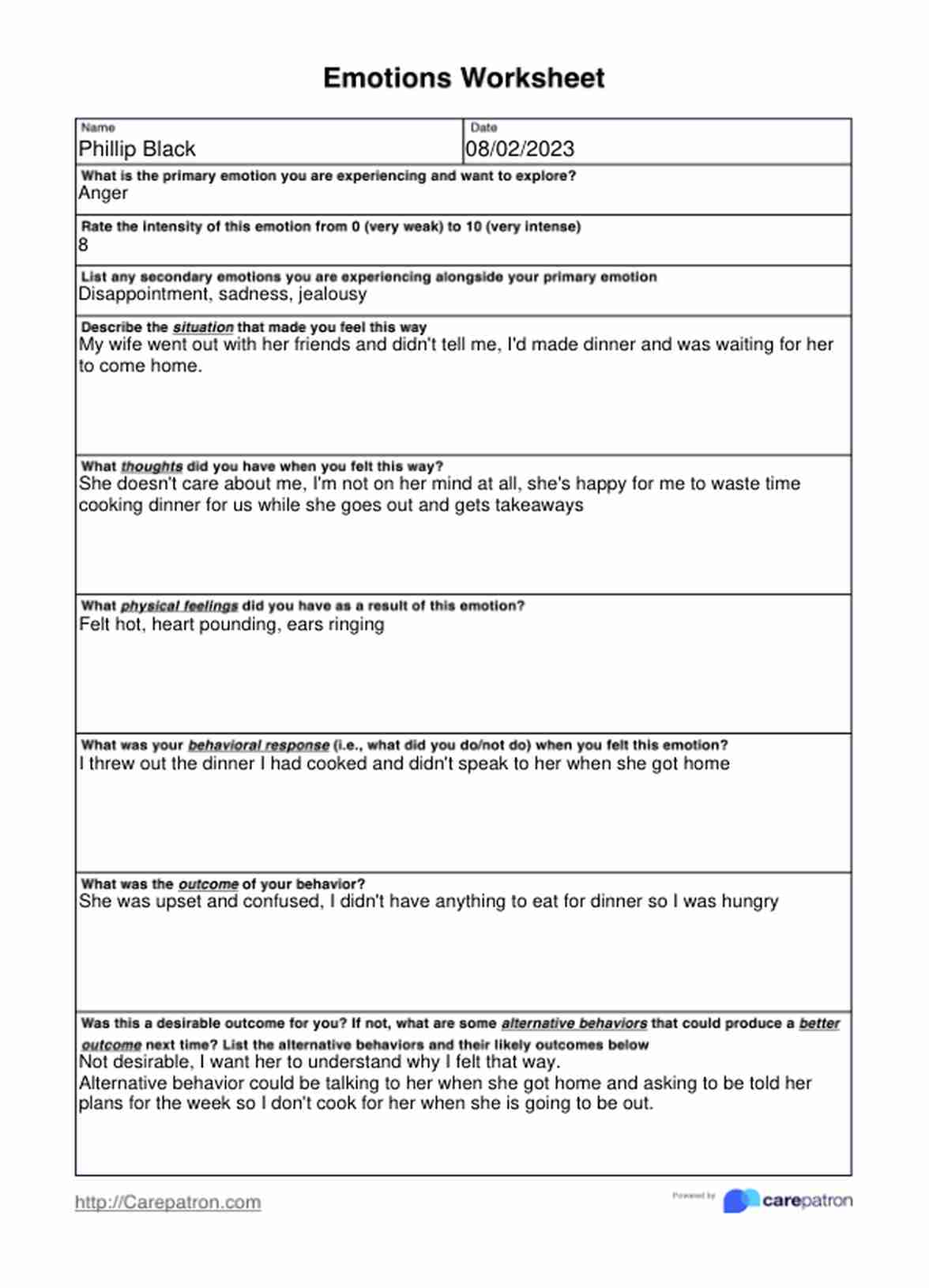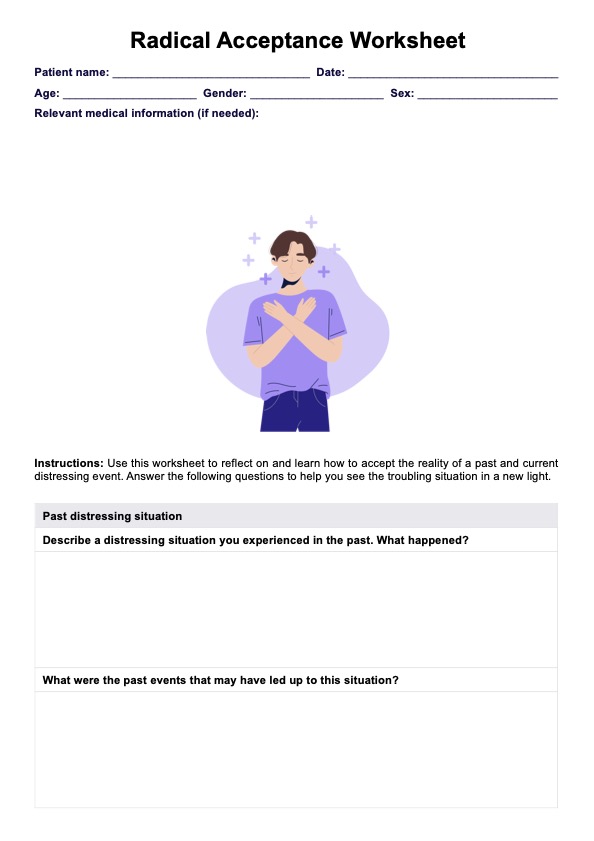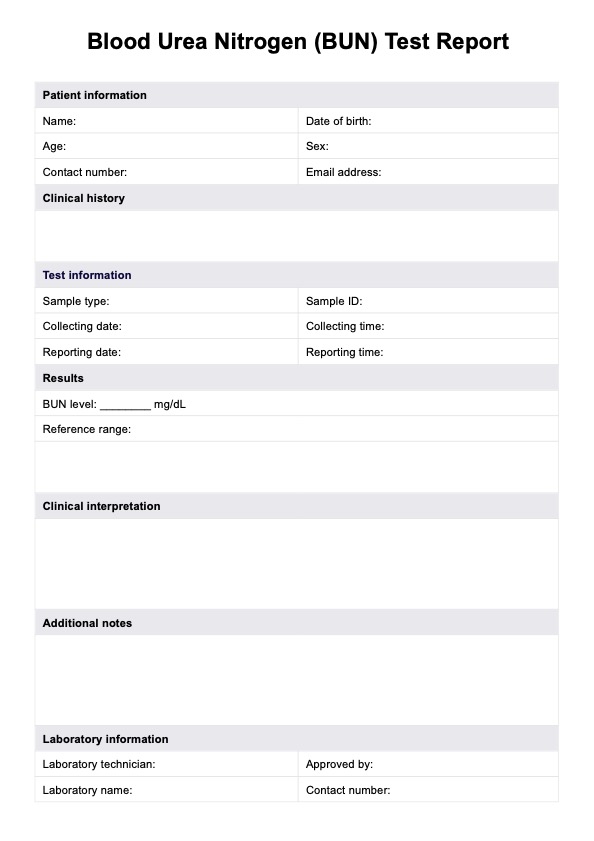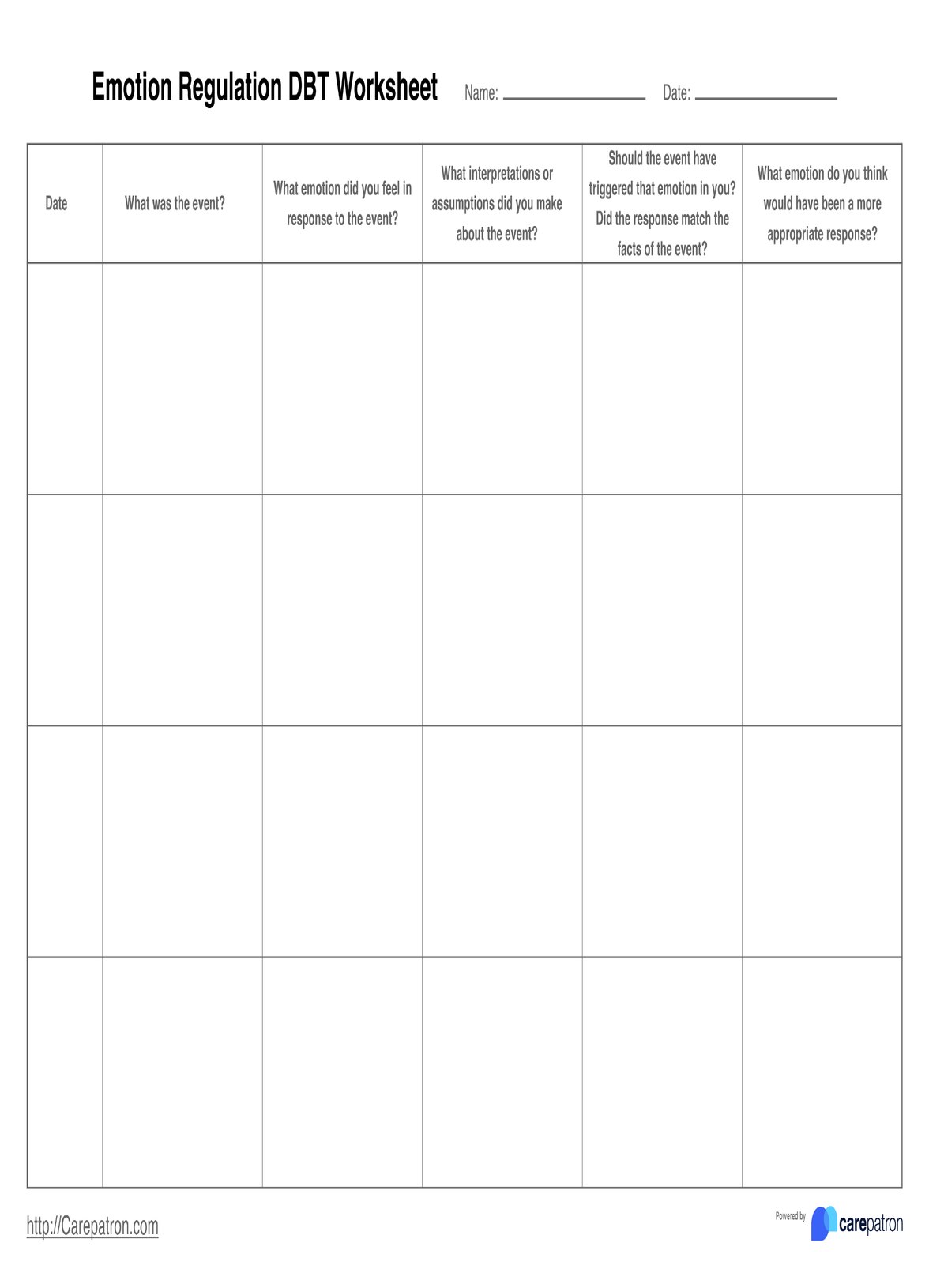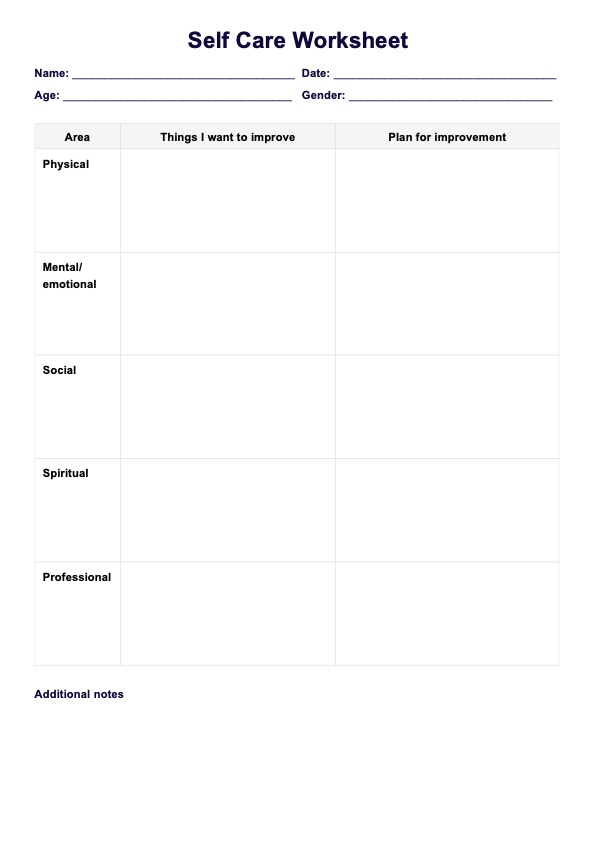ADHD Focus Plan
Learn how to create an effective ADHD focus plan with Carepatron's free PDF download. Includes strategies and examples to help individuals with ADHD improve their focus and productivity.


What is a focus plan?
A focus plan, particularly an ADHD Focus Plan is a structured tool designed to help individuals with attention deficit hyperactivity disorder (ADHD) keep focus and accomplish tasks efficiently. It serves as a roadmap for managing symptoms and improving concentration amidst distractions.
The ADHD Focus Plan worksheet typically includes sections for listing important tasks, prioritizing them, and allocating specific time slots for completion. It encourages individuals to break down tasks into manageable steps and tackle them one at a time, minimizing the feeling of being overwhelmed.
In addition to task management, a focus plan may incorporate strategies such as scheduling regular breaks, incorporating ADHD medications as prescribed by healthcare professionals, and integrating techniques like mindfulness or regular meditation practice to enhance focus.
How is it usually structured?
The structure of an ADHD Focus Plan typically follows a straightforward format to help individuals keep focus and accomplish tasks effectively. Here's how it's usually structured:
- Task Identification: List out all important tasks that need to be completed.
- Prioritization: Rank tasks based on urgency and importance.
- Time allocation: Allocate specific time slots for completing each task on the to-do list.
- Breakdown: Break down larger tasks into smaller, manageable steps.
- Integration of strategies: Incorporate strategies such as ADHD medications, regular meditation practice, or other techniques to enhance focus.
- Flexibility: Allow for flexibility in the plan to accommodate unexpected changes or interruptions.
- Monitoring progress: Regularly review and adjust the plan as needed to stay on track.
- Reward system: Implement a reward system to stay motivated and reinforce positive behavior.
- Consistency: Stick to the plan consistently to build focus and productivity habits.
- Reflection: Reflect on successes and challenges to learn and improve for plans.
How often and for how long should such a plan be used?
An ADHD Focus Plan should be used consistently to reap its full benefits. Ideally, individuals should use the plan daily to help manage their tasks, maintain focus, and stay organized. As for duration, it's recommended to use the plan for as long as it improves productivity and manages symptoms.
Some individuals may succeed with short-term use, while others may benefit from incorporating it into their long-term routine for ongoing support and structure.
Ultimately, the frequency and duration of use should be tailored to the individual's needs and preferences.
ADHD Focus Plan Template
ADHD Focus Plan Example
How can focus plans help people with ADHD?
Focus plans are invaluable tools for individuals with ADHD, providing structure and guidance to manage symptoms and improve productivity. Here are several ways in which focus plans can benefit those with ADHD:
Task management
Focus plans assist individuals in organizing their tasks effectively, breaking them down into manageable steps on an ADHD Focus Plan worksheet. This helps prevent feeling overwhelmed and ensures tasks are completed efficiently.
Improved concentration
Focusing on one task at a time can improve concentration and minimize distractions. A focus plan's structured approach helps individuals stay focused and maintain attention on the task at hand.
Enhanced productivity
With a clear to-do list and designated time slots for tasks, individuals can engage in focused work and accomplish more within a specified timeframe. This boosts productivity and helps individuals stay on course with their goals.
Motivation and accountability
A written ADHD plan creates a sense of accountability, motivating individuals to follow through on their tasks. The visual representation of tasks to be completed can serve as a reminder of progress made and goals to strive for.
Stress reduction
Focus plans help individuals manage their workload effectively by breaking tasks into smaller steps and allocating time for completion. This reduces stress and anxiety associated with procrastination or feeling overwhelmed.
Long-term benefits
Consistent use of focus plans can help individuals develop sustainable habits for task management and concentration, leading to long-ter
How to use our ADHD Focus Plan template
Medical professionals can effectively utilize Carepatron's ADHD Focus Plan template to assist individuals in managing their symptoms and improving focus. Here's a guide on how to use the template:
Introduction and explanation
Begin by introducing the ADHD Focus Plan template to the individual, explaining its purpose and how it can benefit them in managing their ADHD symptoms.
Task identification
Guide the individual in listing out all essential tasks that need to be completed, ensuring they understand the importance of prioritization.
Prioritization and time allocation
Assist the individual in ranking tasks based on urgency and importance and allocate specific time slots for completing each task on the to-do list.
Breakdown and integration
Help the individual break down larger tasks into smaller, manageable steps, and integrate strategies such as medication management or mindfulness practices to improve focus.
Review and adjustment
Encourage the individual to review and adjust the plan regularly as needed, ensuring it remains effective in managing symptoms and improving productivity.
Support and follow-up
Provide ongoing support and follow-up to monitor progress, address any challenges, and make necessary adjustments to the plan for continued success in managing ADHD symptoms.
Benefits of having a focus plan for ADHD
Implementing a focus plan tailored for ADHD can yield numerous advantages in managing symptoms and improving daily functioning. Here are several benefits:
Improved task completion
A structured ADHD Focus Plan worksheet helps individuals organize tasks effectively, making it easier to prioritize and complete them on time.
Better organization
By breaking tasks into manageable steps and scheduling them on a focus plan, individuals can enhance their organizational skills, increasing productivity and efficiency.
Enhanced motivation
Having a visual representation of tasks and deadlines on an ADHD plan can boost motivation and accountability, encouraging individuals to stay on track and achieve their goals.
Reduced stress and anxiety
A focus plan reduces overwhelming feelings by providing a clear roadmap for completing tasks, thereby reducing stress and anxiety associated with procrastination and last-minute rushes.
Improved time management
Utilizing a focus plan helps individuals allocate their time more effectively, ensuring tasks are completed within specified timeframes and reducing the likelihood of feeling overwhelmed by deadlines.
Better focus and concentration
Through minimizing distractions and providing a structured environment for task completion, a focus plan helps individuals concentrate better, leading to improved productivity and task performance.
Enhanced sleep and well-being
By helping individuals identify and prioritize tasks, a focus plan can lead to better sleep patterns and overall well-being, as the reduced stress and anxiety associated with task management can contribute to improved sleep quality and overall health.
Other ways of managing ADHD and maintaining focus
In addition to using a focus plan, there are several other strategies individuals with ADHD can employ to manage symptoms and maintain focus:
Regular exercise
Engaging in regular physical activity can help reduce ADHD symptoms by increasing dopamine and norepinephrine levels in the brain, which are neurotransmitters associated with attention and focus.
Adequate sleep
Ensuring sufficient sleep is essential for managing ADHD symptoms, as sleep deprivation can exacerbate difficulties with concentration, impulse control, and emotional regulation.
Mindfulness and meditation
Practicing mindfulness and meditation techniques can help individuals with ADHD improve their focus and attention by training the brain to become more present and aware of the present moment.
Dietary changes
Making dietary adjustments, such as reducing sugar and processed foods, and increasing intake of omega-3 fatty acids and antioxidants, may help alleviate ADHD symptoms and improve focus and concentration.
Behavioral therapy
Behavioral therapy techniques, such as cognitive-behavioral therapy (CBT) and dialectical behavior therapy (DBT), can provide individuals with ADHD with coping skills and strategies for managing impulsivity, improving organization, and maintaining focus in various settings.
Commonly asked questions
Improving focus with ADHD involves implementing strategies like breaking tasks into smaller steps, minimizing distractions, and using tools like timers or reminders to stay on track.
Attention coping skills for ADHD include techniques such as mindfulness meditation, deep breathing exercises, and visualization to increase focus and reduce distractibility. Creating a conducive environment for work or study with minimal distractions can also support attentional control.
Success with ADHD involves utilizing strengths like creativity and hyperfocus. This may include setting realistic goals, breaking tasks into manageable steps, seeking support from healthcare professionals, and building a strong support network.


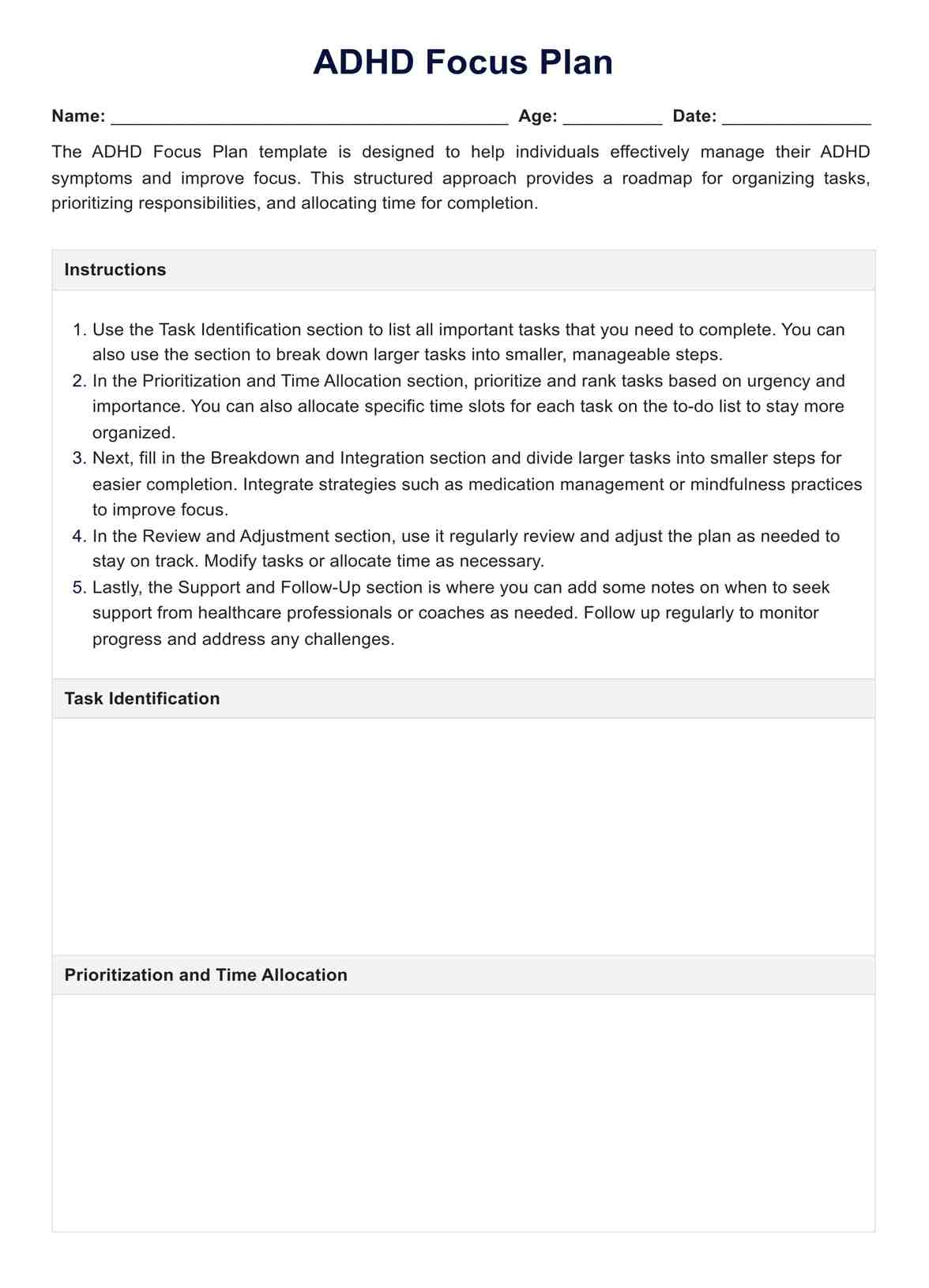
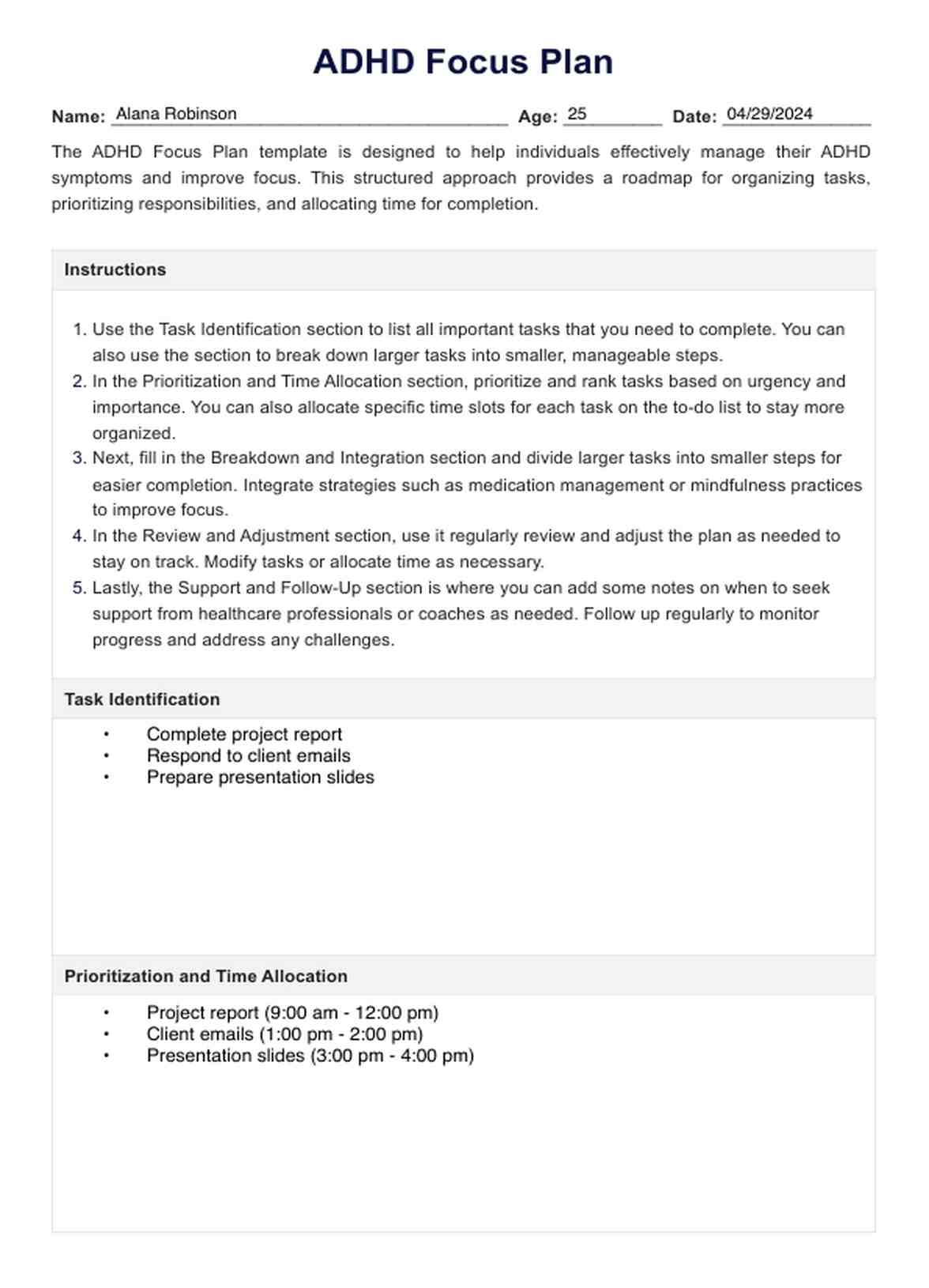

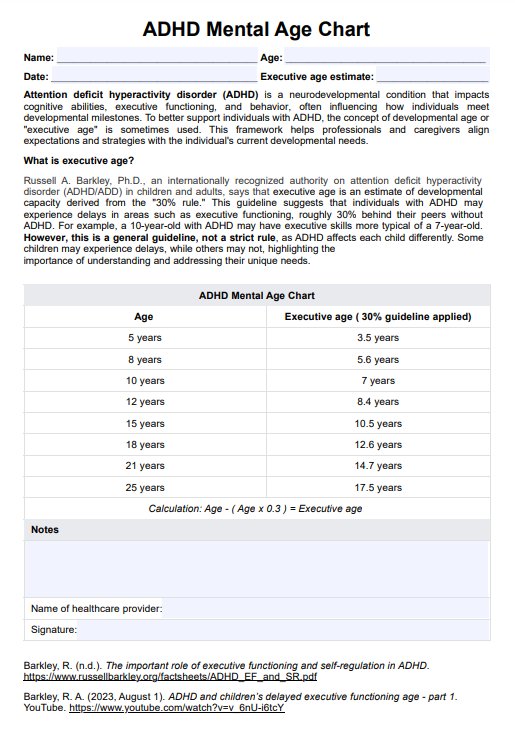
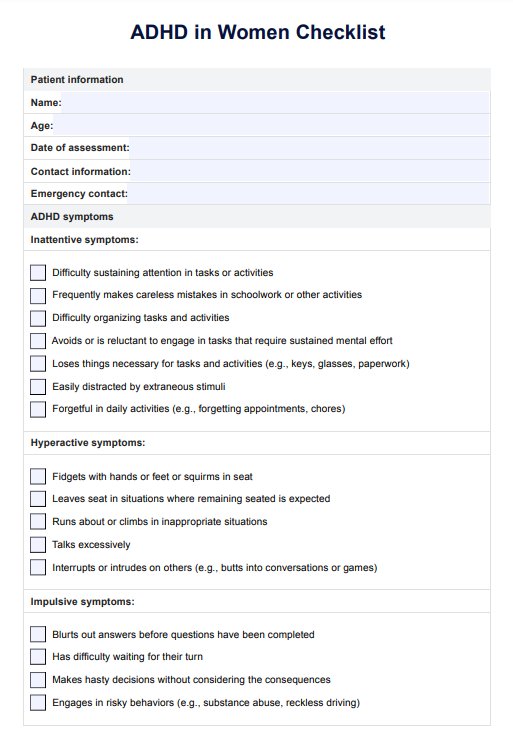
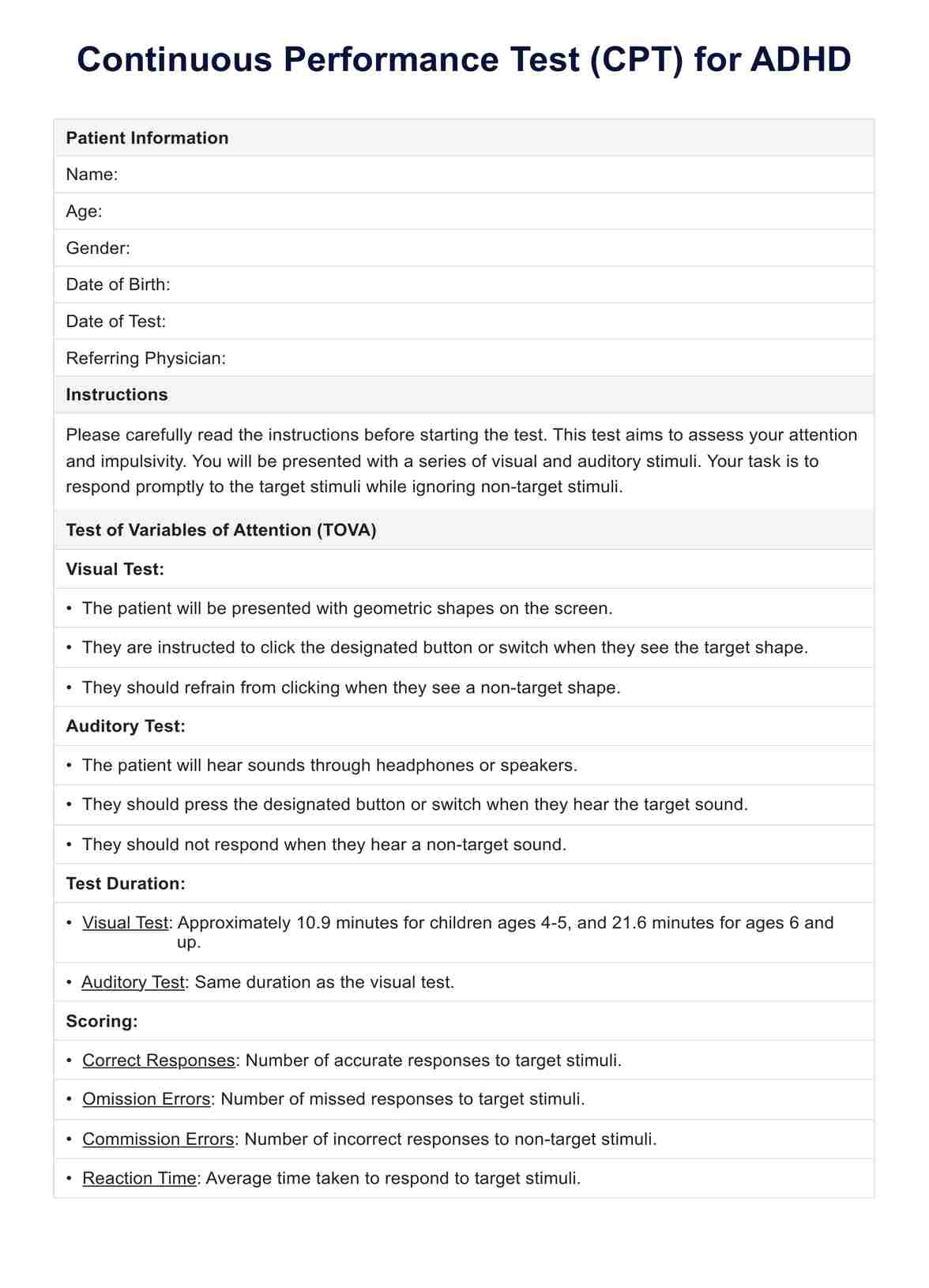
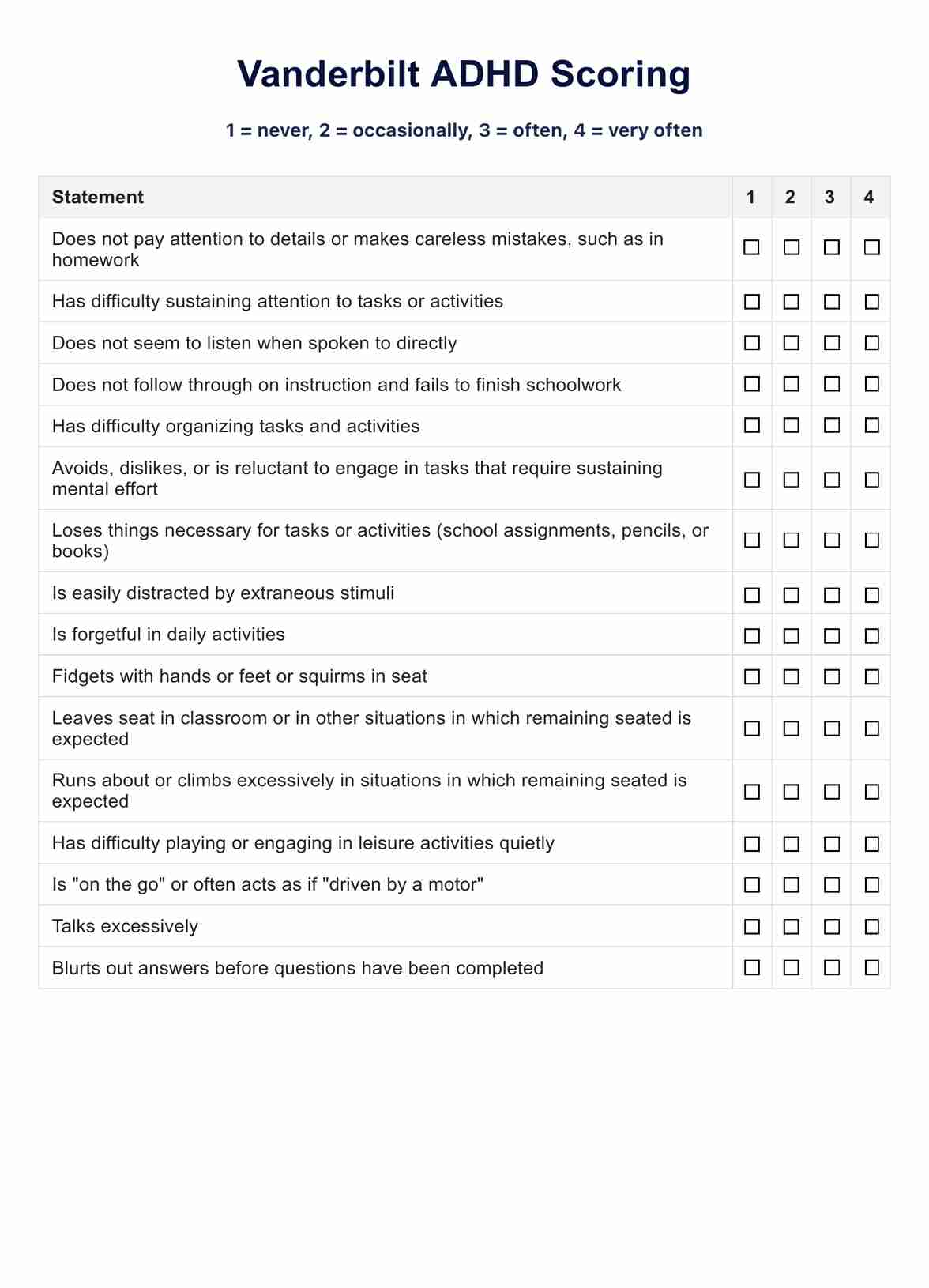
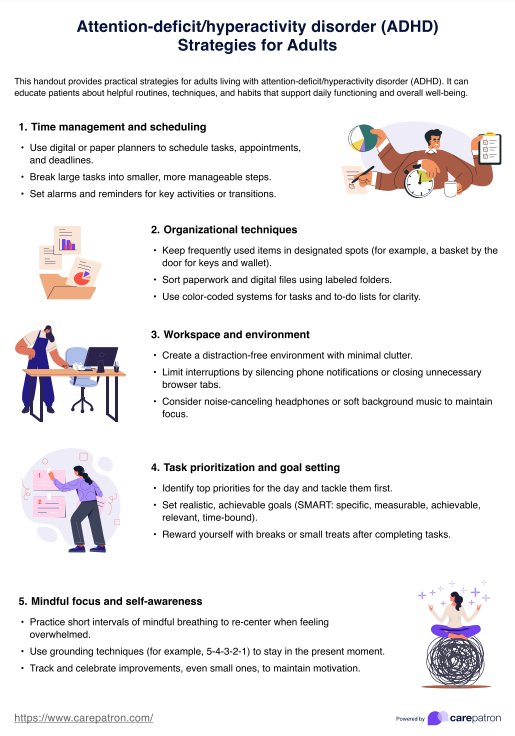
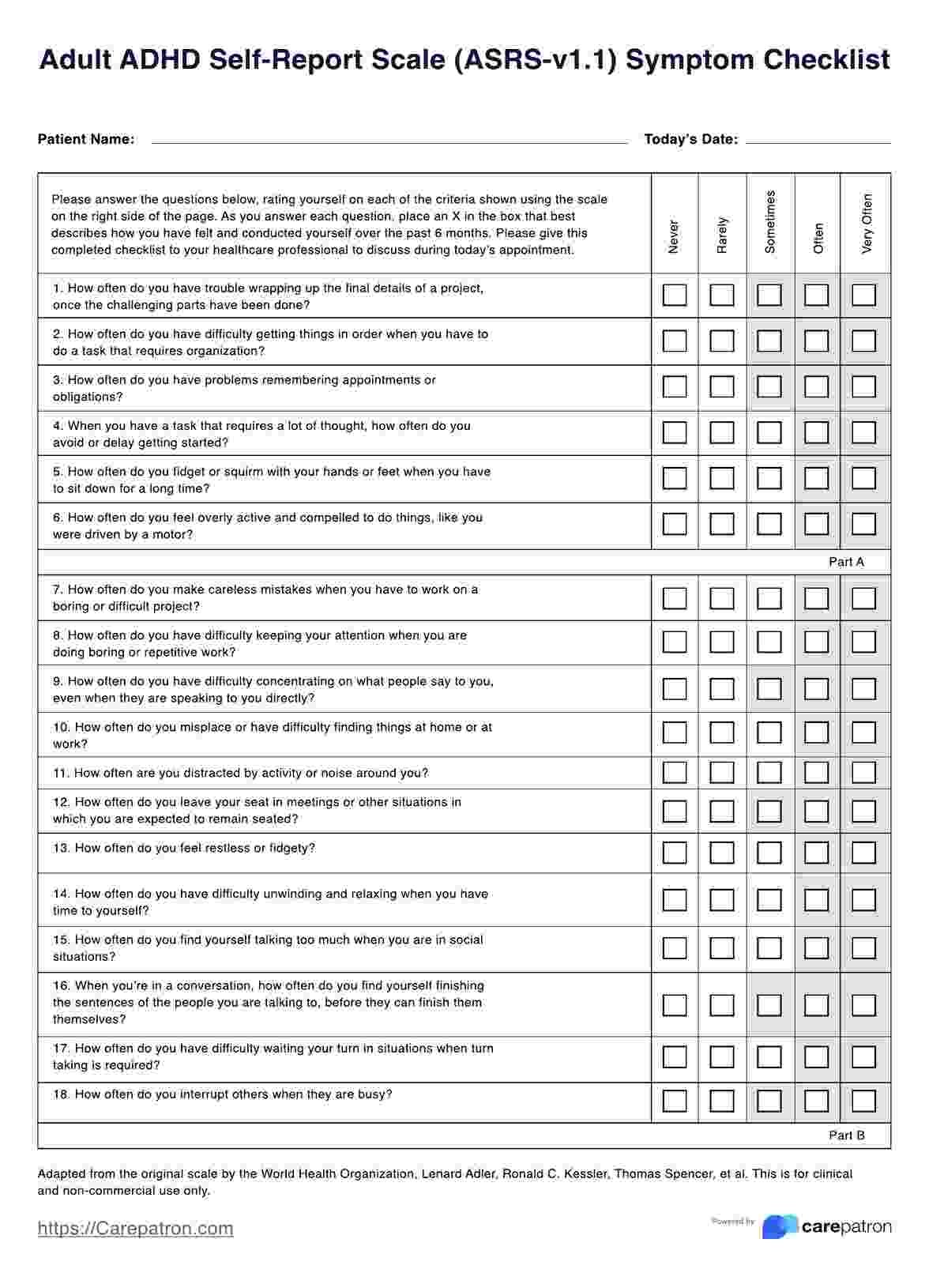
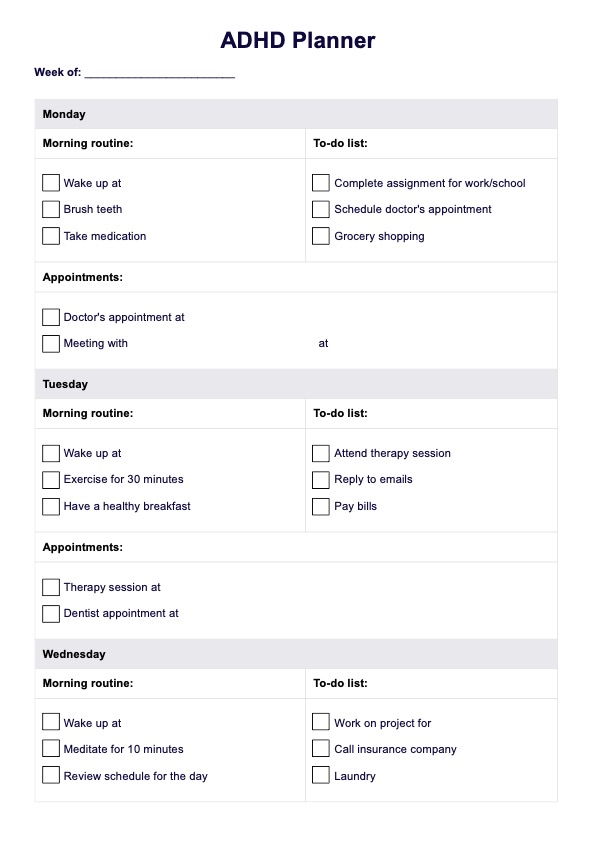
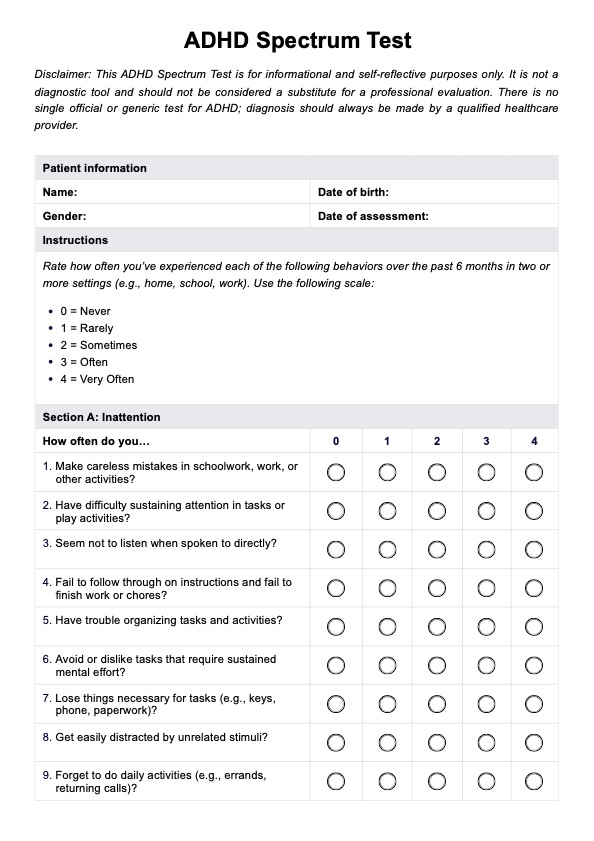
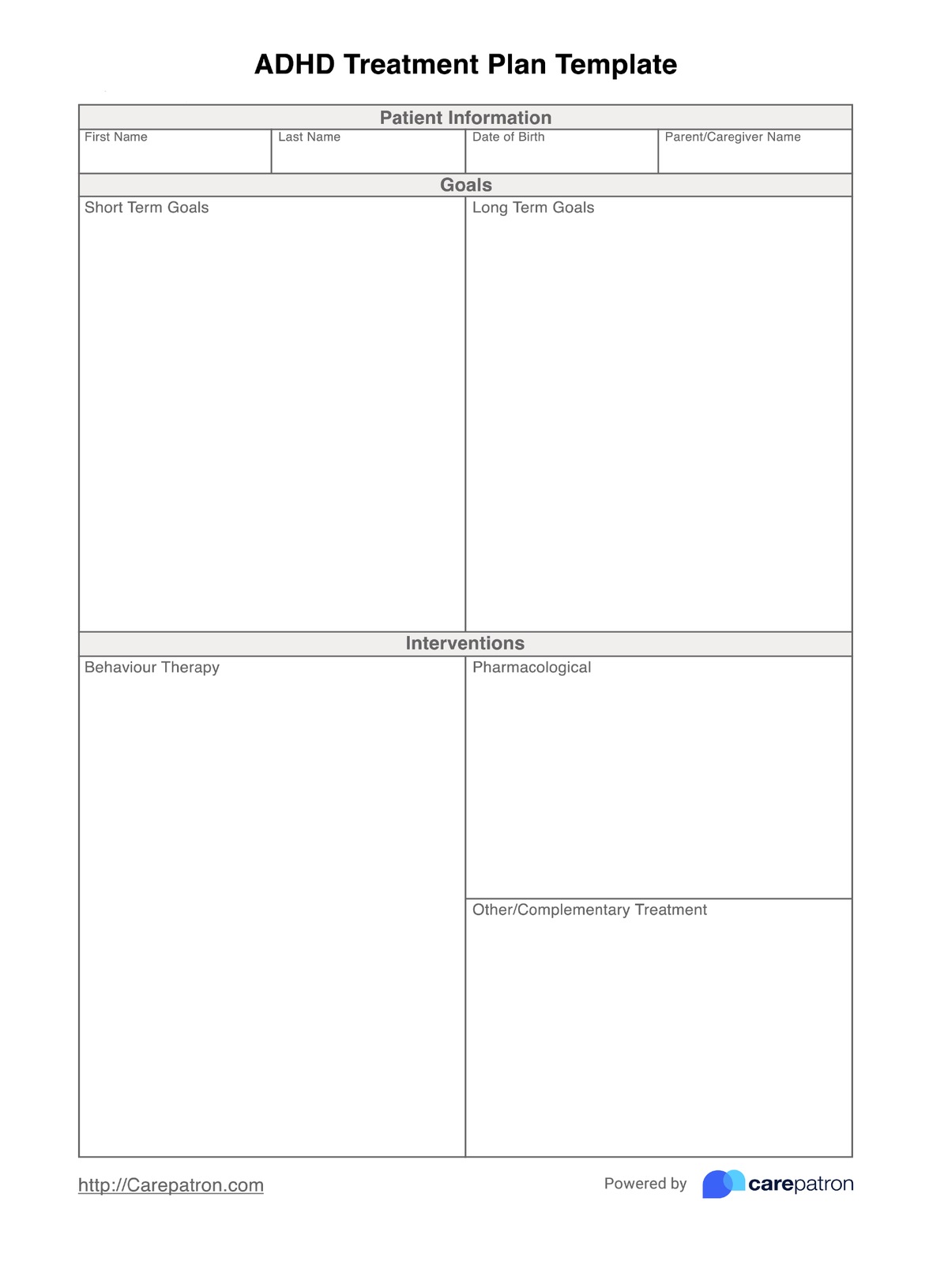
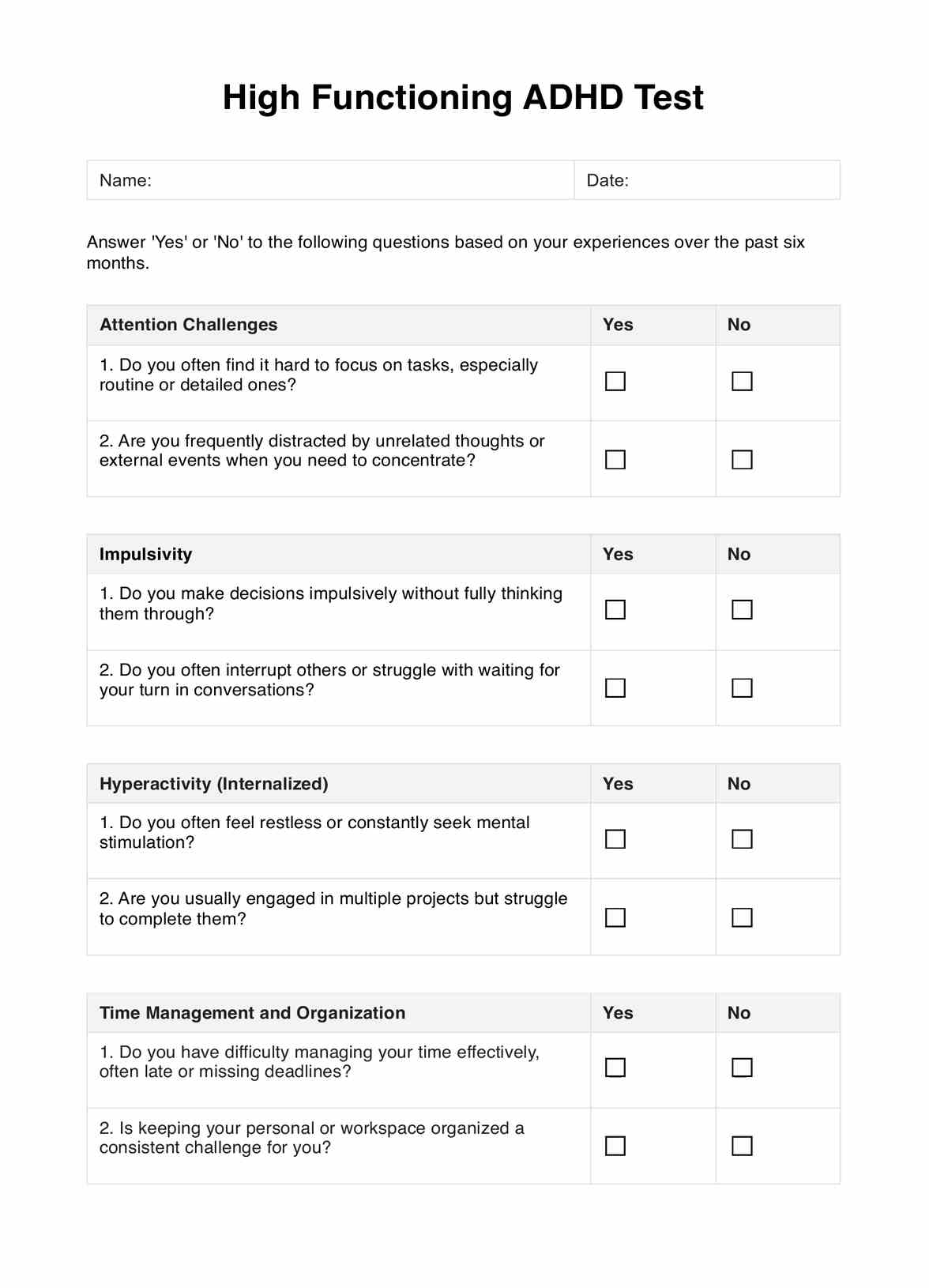
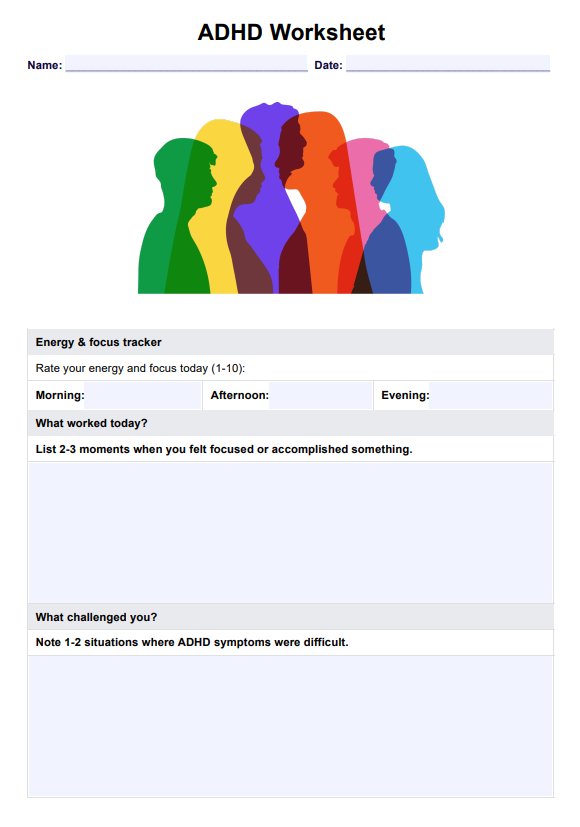
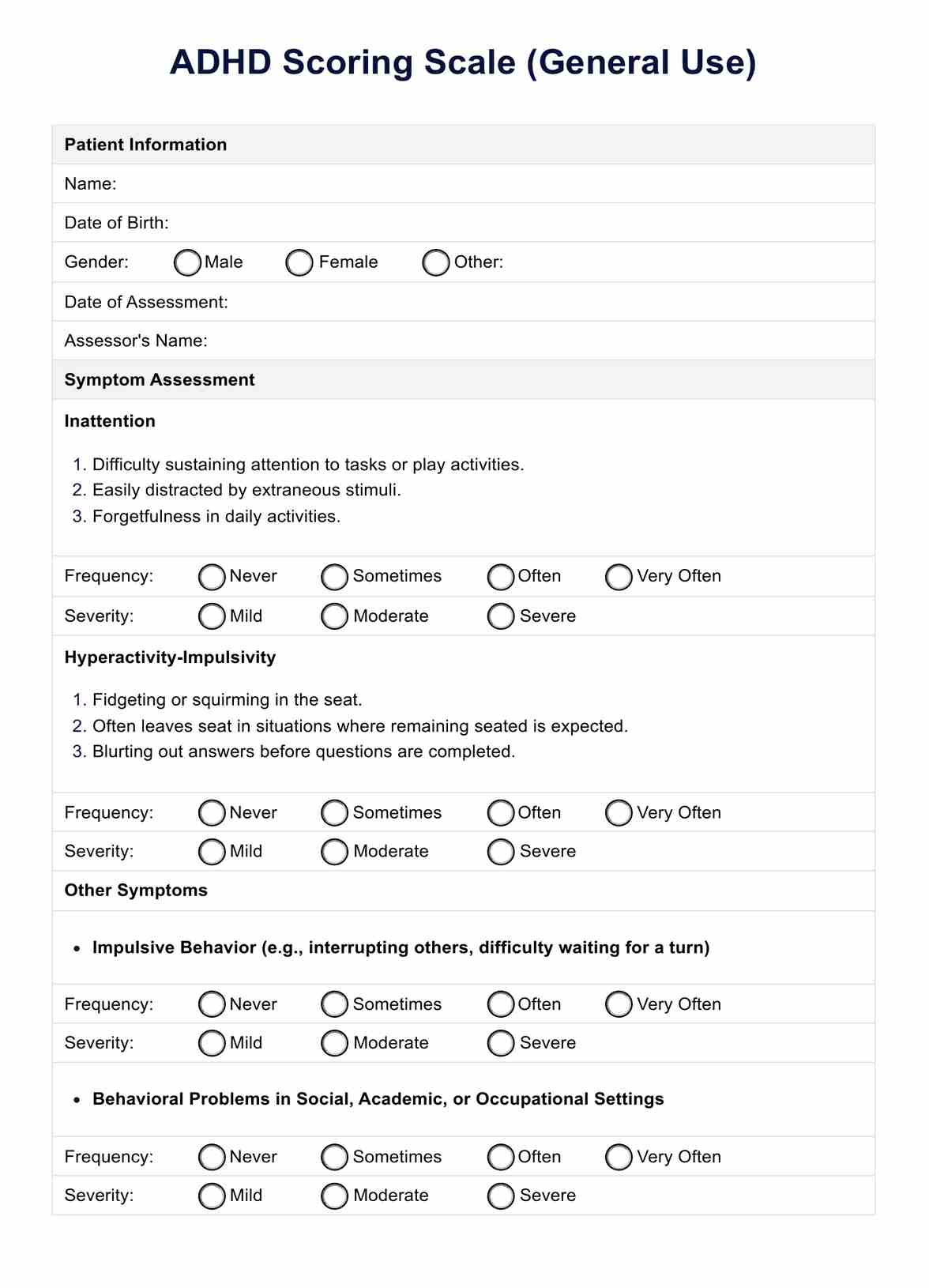
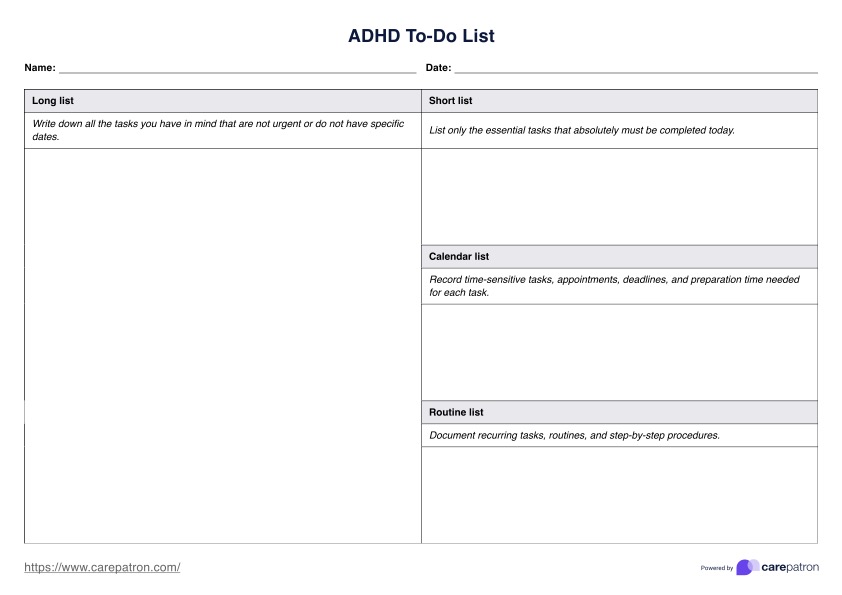
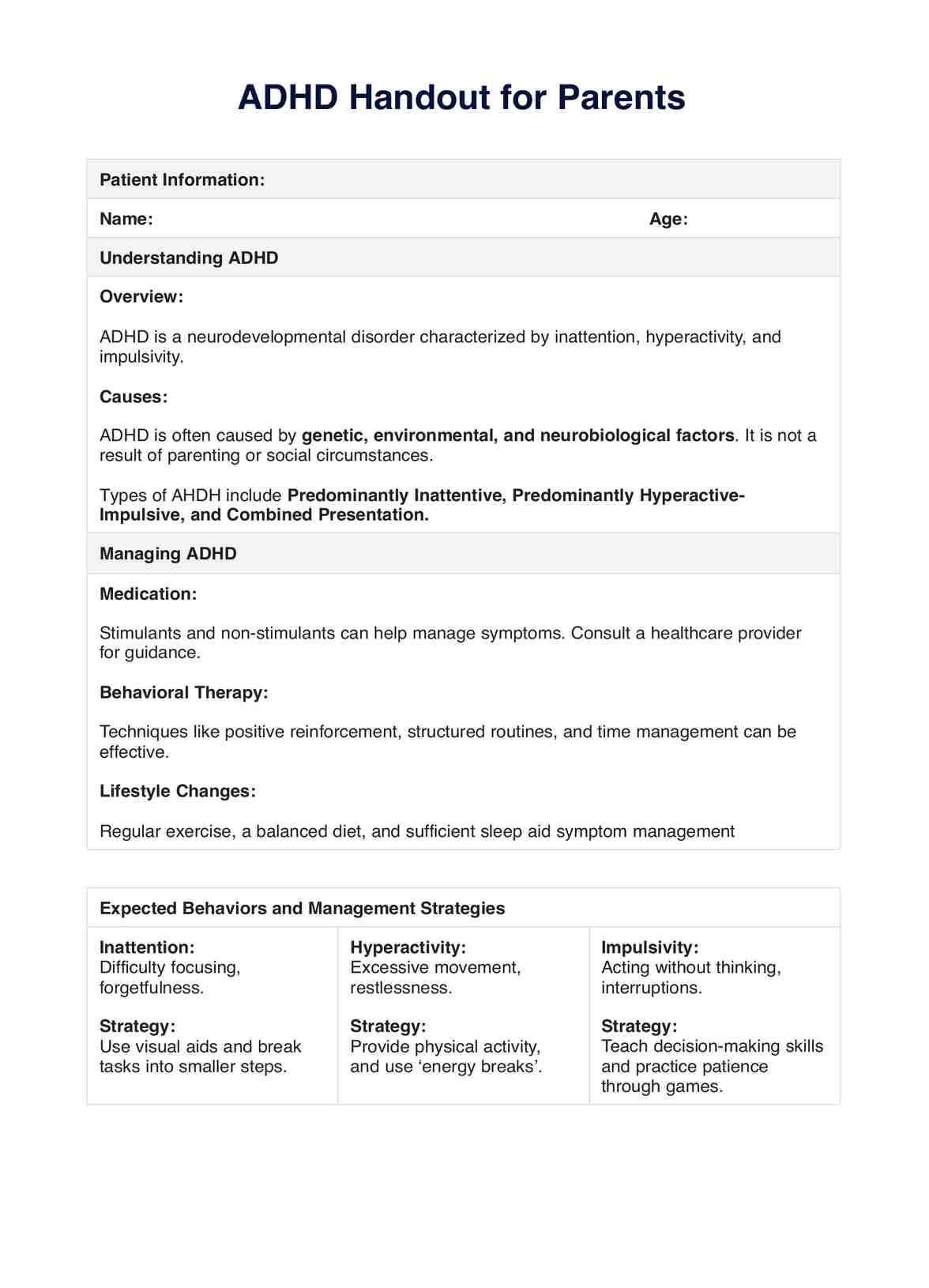
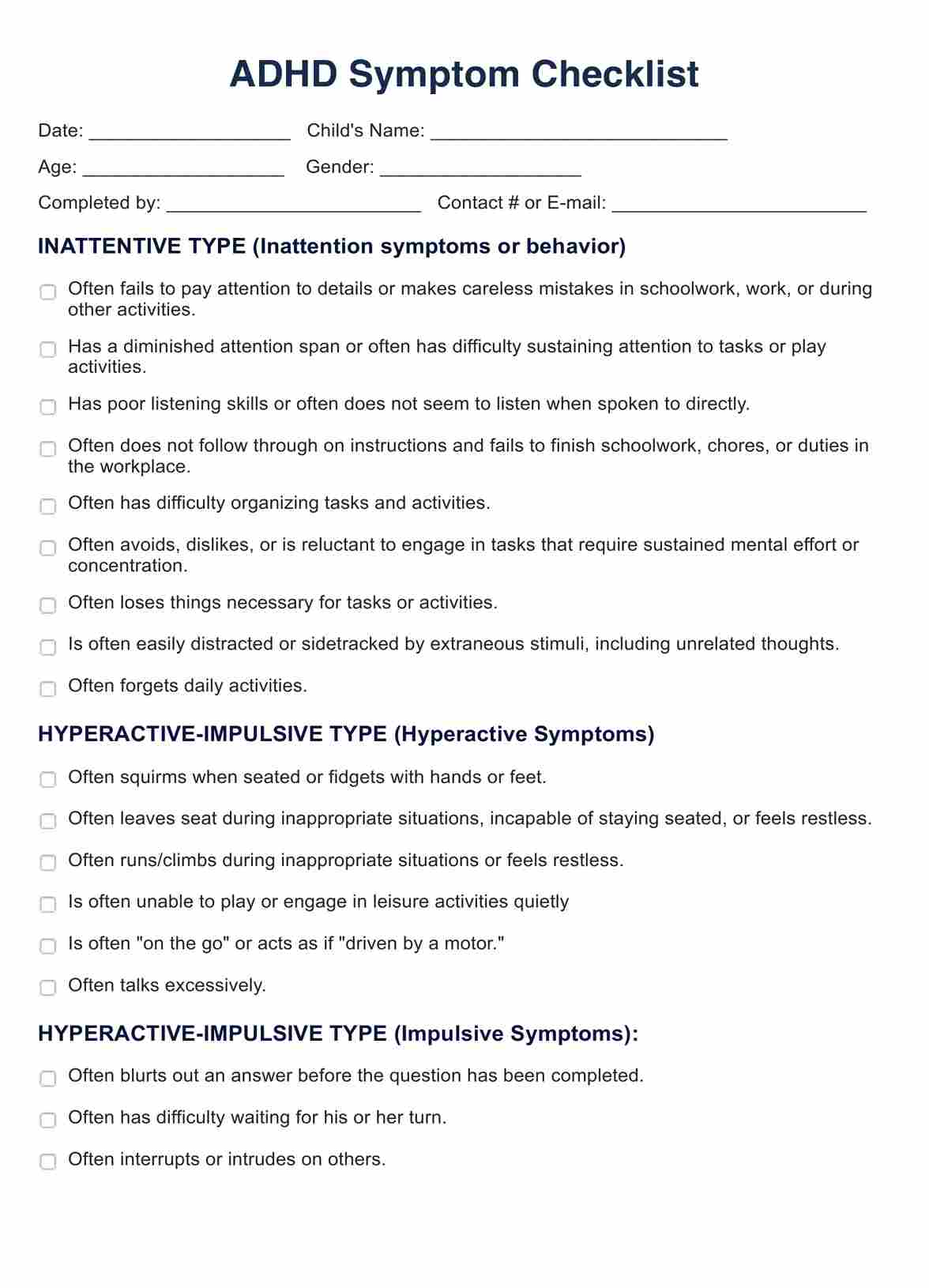
















-template.jpg)



















































































